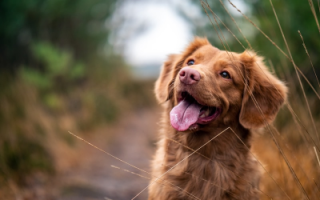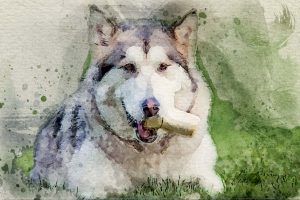How to Stop Your Dog from Chewing His Dog Bed
Dogs chew. They chew and bite anything from shoes to cushions to furniture because it is their natural instinct. And sometimes, it’s the dog bed that falls prey to their unrelenting gnawing.
However, there can also be many more underlying reasons for such behavior, like separation anxiety and boredom. It could also be that puppies (under 6 months) are simply going through a teething phase.
Nevertheless, it’s costly, frustrating, and messy. Most importantly, the shredded pieces of cotton/fabric can get stuck in your dog’s digestive or respiratory tracts. It could lead to potential health complications or even death from asphyxiation. It is thus essential that you learn how to stop your dog from tearing up his dog bed and put an end to this ruinous habit.
- Identifying the Root of the Cause
The destructive chewing pattern is most common in adult dogs and can indicate stress-related behavior. The most efficient solution is to identify and eliminate the stressors that tend to set off your dog. Is it the separation anxiety, a new environment, external noise, or the presence of small children and other dogs?
Discerning your dog’s temper swings can be tedious, but we recommend keeping a diary for a few days. Note down all the factors at play. If you sense a pattern, try discussing the issue with your Vet to understand better what’s causing this hyperactivity.
2. Relieving the Boredom
Meanwhile, you can take your dog on regular walks, switch it up with trail hikes on the weekends, or sign up for some group classes in your locality. If the destructive behavior is due to all the pent-up energy, then he must get enough exercise in a day to tire himself out. You absolutely must check out this Dog Bucket List by Annette if you’re looking for more dog-friendly activities.
One of the best ways to keep your dog busy is to set a schedule for a particular time a day to give him a puzzle toy with his favorite treats inside. It is a good idea to include some of his daily food portions this way, especially if you’re worried about disrupting his eating routine.
3. Correcting the Destructive Behavior
When you next catch your dog going bonkers at the poor bed, do not try to snatch the material away from him. Instead, use a rattling can or similar technique to grab the dog’s attention. A firm ‘no’ also goes a long way. Introduce him to new, safer chew toys as a reward for listening to you. Here’s a well-put-together list for next to impossible indestructible chew toys that you might find helpful.
Alternatively, you can spray deterrents on objects you don’t want your dog to chew. Although, it is essential to help him first understand the odor of the deterrent as highly offensive. You can try by gently placing a sprayed cotton ball in his mouth. The taste would cause him to spit it out immediately. Eventually, he will be able to connect it to the smell and bingo!
Bottom Line
Altogether, chewing is natural for dogs. They chew for gum stimulation, to relieve the itch from incoming teeth, or just for fun. Remember to be patient with your dog and keep practicing the strategies listed above. Please consider taking your dog to the Vet if you find his destructive behavior going out of hand.







